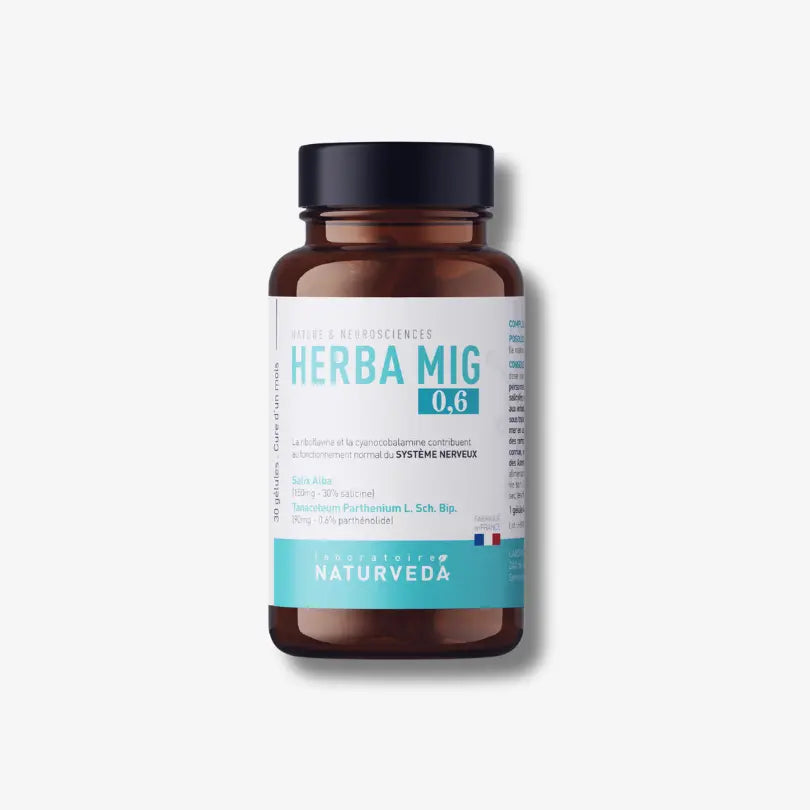Naturopathy is a holistic approach to health that uses natural methods to help the body heal itself. At the heart of this practice are medicinal plants, which play a vital role in promoting well-being and preventing disease. This article explores the benefits of the main medicinal plants used in naturopathy, providing an overview of their uses and importance.
What is naturopathy?
Definition and principles of naturopathy
Naturopathy is based on the idea that the body has an innate ability to heal itself when supported by natural methods . Basic principles include the use of nutrition, exercise, and herbal remedies to support this healing. The primary goal is to maintain or restore an optimal balance of health .
Role of medicinal plants in naturopathy
Medicinal plants are valued in naturopathy for their varied therapeutic properties . They offer a natural alternative to synthetic drugs , allowing a multitude of disorders to be treated gently and effectively. Their use is based on traditional and scientific knowledge, and has many benefits that make it a preferred approach for promoting health and treating diseases.
- Herbal remedies are natural and often better tolerated by the body than synthetic drugs, reducing the risk of unwanted side effects.
- Their richness in bioactive compounds , such as flavonoids, alkaloids and essential oils, makes it possible to effectively target various health disorders, while offering a gentle and body-friendly approach.
- Medicinal plants can be used preventatively to strengthen the immune system, improve digestion, reduce stress and balance bodily functions .
- The variety of preparation forms , such as herbal teas, tinctures, essential oils and food supplements, offers great flexibility of use adapted to individual needs.
- Integrating herbal medicines into a naturopathic care regimen promotes a holistic approach to health , treating not only the symptoms but also the root causes of imbalances, and encouraging healthy and sustainable lifestyle habits. This method helps maintain a general state of well-being and prevent the onset of diseases, thus contributing to a better quality of life in the long term.
The main medicinal plants used in naturopathy
Chamomile
Chamomile is known for its soothing, antispasmodic and anti-inflammatory properties . Used for centuries, it helps calm the nerves, reduce anxiety and promote restful sleep. In addition, its antispasmodic effects make it useful for relieving digestive disorders such as bloating and colic. Chamomile is often prepared as a tea for a quick calming effect.
St. John's Wort
St. John's wort is a natural antidepressant that also has antiviral properties . It is mainly used to treat mild to moderate depression and nervous disorders. Its active compounds, such as hypericin, act on the central nervous system to improve mood and reduce anxiety. In addition, it facilitates the healing of wounds and burns, which broadens its therapeutic scope. It is usually available in capsule or tincture form.
Valerian
Valerian is renowned for its sedative and relaxing effects . It is commonly used to combat insomnia, reduce anxiety, and relieve muscle spasms. Its roots contain compounds that increase the level of GABA in the brain, a neurotransmitter that promotes calmness and relaxation. Valerian can be consumed as a tea or as a dietary supplement for better quality sleep.
Echinacea
Echinacea is known for its immune-boosting properties . It strengthens the immune system and increases resistance to infections, especially colds and flu. It stimulates the production of white blood cells, improving the body's ability to fight infections. This herb is commonly taken as a tincture or supplement to prevent seasonal illnesses.
Ginger
Ginger has anti-inflammatory and digestive properties . It is often used to promote digestion, relieve nausea, and relieve inflammatory joint pain. Its active compounds, such as gingerols, have powerful anti-inflammatory effects, making it effective against pain and inflammation. Ginger is traditionally consumed fresh, powdered, or as a herbal tea for a warming and stimulating effect.
Ginkgo
Ginkgo is valued for its vasodilatory and neuroprotective effects . It improves blood circulation, particularly in the brain, and protects neurons, which helps improve memory and concentration. Its antioxidant and anti-inflammatory properties add to its health benefits. Ginkgo is frequently used as a dietary supplement for its effects on cognition.
Nettle
Nettle is a purifying and anti-inflammatory plant that helps eliminate toxins from the body. It is used to relieve the symptoms of seasonal allergies, treat arthritis, and improve skin disorders. Its richness in vitamins and minerals also makes it an excellent nutritional supplement. Nettle can be consumed as a herbal tea, soup, or as a dietary supplement.
Aloe Vera
Aloe vera is widely used for its moisturizing and healing properties . It accelerates the healing of wounds, burns and skin irritations while providing intense hydration to the skin. When used internally, it improves digestion and relieves gastrointestinal disorders. Aloe vera gel can be applied directly to the skin or consumed as juice.
Methods of using medicinal plants
Herbal teas and infusions
Herbal teas and infusions are a common method for extracting active compounds from plants. They allow for rapid and efficient assimilation of the active ingredients , offering a simple way to benefit from the therapeutic properties of plants.
Dyes
Tinctures are concentrated liquid extracts obtained by macerating plants in alcohol. They offer a high concentration of active compounds and are used for more powerful doses, adapted to specific needs.
Essential oils
Essential oils , used in aromatherapy, can be applied to the skin or inhaled for their beneficial effects. They contain volatile compounds extracted from plants , offering powerful therapeutic properties for the body and mind.
Food supplements
Dietary supplements in capsule or tablet form make it easy to consume herbal extracts in precise doses. They offer a convenient way to incorporate medicinal plants into a daily health routine.
Precautions and recommendations
It is essential to consult a healthcare professional before starting any herbal treatment , especially if you are already taking medication. A naturopath or specialist doctor can provide advice tailored to your situation.
Furthermore, respecting the recommended doses is crucial to avoid unwanted side effects. Medicinal plants, although natural, can have powerful effects and require careful use.
Finally, you should also pay attention to possible interactions with other medications and the risk of allergies . Indeed, some plants can interact with ongoing medical treatments, and allergies can occur, requiring increased vigilance.
Conclusion
Herbal remedies play a crucial role in naturopathy, offering a multitude of health benefits. From soothing chamomile to anti-inflammatory ginger, each herb brings unique and valuable properties. However, it is important to use them in an informed manner and under the supervision of a healthcare professional. By adopting a conscious approach, herbal remedies can become powerful allies in promoting well-being and preventing disease.




